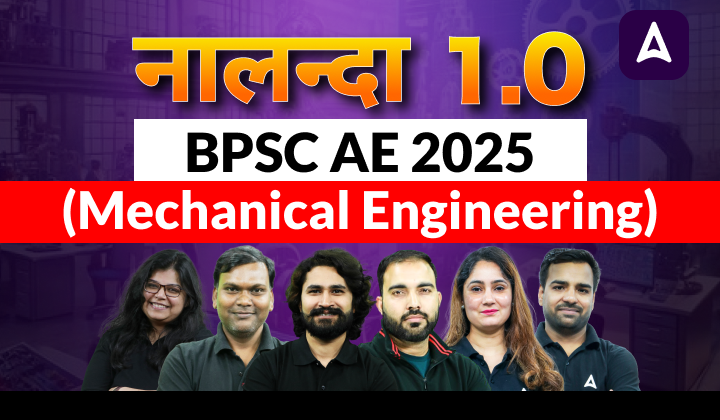Table of Contents
Civil engineering, one of the oldest engineering disciplines, plays a pivotal role in shaping the infrastructure of a nation. In India, the demand for skilled civil engineers is ever-growing, driven by rapid urbanization, infrastructure development, and the government’s ambitious projects. This article delves into the salary landscape for civil engineers in India in 2024, focusing on in-hand salaries, monthly earnings, and average income.
Overview of Civil Engineer Salary In India
Before diving into salary specifics, it’s essential to understand the scope and responsibilities of civil engineers in India. Civil engineers are involved in designing, constructing, and maintaining physical infrastructure, which includes roads, bridges, buildings, water supply systems, and more. Their work ensures the safety, functionality, and sustainability of these structures.
With India’s focus on enhancing its infrastructure through projects like the Smart Cities Mission, Bharatmala, and various metro rail projects, the role of civil engineers has become even more critical. This increased demand for civil engineering expertise has influenced salary trends in the sector.
Skills Required To Be a Successful Civil Engineer
A successful civil engineer requires a diverse skill set to excel in the field. Technical skills are paramount; proficiency in software like AutoCAD, Civil 3D, and SAP2000 is essential for designing and analyzing structures. A solid understanding of materials science, fluid mechanics, and structural analysis ensures sound project execution. Problem-solving skills enable engineers to navigate complex challenges and devise efficient solutions. Effective communication skills are crucial for collaborating with multidisciplinary teams and conveying technical information to non-experts.
Project management skills, including budgeting, scheduling, and resource allocation, are vital for timely project completion. Attention to detail ensures accuracy in calculations and adherence to safety standards. Familiarity with construction methods and regulations guarantees compliance with legal requirements. Adaptability and continuous learning help engineers stay updated with advancements in technology and industry practices. Lastly, strong leadership and teamwork abilities foster a collaborative work environment, driving successful project outcomes.
Apart from these, civil engineers should also have the following skills to be prosperous in their careers:
- Attention to detail
- Technical proficiency
- Organisational skills
- Creativity
- Project management
- Communication
- Leadership
Skill Set
- Prepare bids for tenders and generate client reports for public agencies as well as their employers.
- Check if the project is meeting the safety and legal standards.
- Must have excellent interpersonal and communication skills.
- Always work as a unit and should be approachable when junior civil engineers come to them for learning and taking advice.
- Should be updated regarding the evolving technological trends in the civil engineering industry. For this, they should participate in workshops regularly.
- Must cooperate professionally with CAD employees, architects, and construction supervisors.
- Analyze the survey data conducted by professional surveyors.
- Know how to map and model the test data leveraging the company’s modeling software.
- Evaluate the project’s environmental impact. They must assess if the project is feasible by analyzing material and labor costs. They should also ensure that the project deadlines can be met.
Job Profile of Civil Engineer in India
A Civil Engineer in India plays a crucial role in designing, planning, and overseeing construction projects, including roads, bridges, buildings, and water systems. They ensure projects meet legal guidelines, safety standards, and budget requirements. Here are some names of Job Profile of Civil Engineer in India.
- Site Engineer
- Contracting Civil Engineer
- Design Engineer
- Nuclear Engineer
- Consulting Civil Engineer
- CAD Technician
- Structural Engineer
- Water Engineer
- Rural and Urban Transport Engineer
- Building Control Surveyor
Key responsibilities include site investigation, project management, and collaboration with architects, contractors, and government officials. Civil Engineers also address environmental concerns and use advanced software for structural analysis. Their expertise is vital in urban development and infrastructure improvement. Typically, a Bachelor’s degree in Civil Engineering is required, with opportunities for specialization and advancement through experience and higher education.
Factors Influencing Civil Engineer Salaries
Several factors influence the salaries of civil engineers in India, including
- Experience- As with most professions, experience plays a significant role in determining salary. Entry-level civil engineers earn less compared to their more experienced counterparts.
- Location- Salaries can vary significantly based on the city or region. Metropolitan areas like Mumbai, Delhi, and Bangalore typically offer higher salaries due to the higher cost of living and greater demand for infrastructure development.
- Education- Higher educational qualifications, such as a master’s degree or specialized certifications, can lead to higher salaries.
- Industry- Civil engineers can work in various industries, including construction, real estate, government, and consultancy. The industry and the specific company can significantly impact salary levels.
- Skills- Specialized skills in areas like project management, structural analysis, and environmental engineering can enhance earning potential.
In-Hand Salary for Civil Engineers in India
The in-hand salary is the amount an employee receives after all deductions, including taxes, provident fund contributions, and other benefits. For civil engineers, this can vary based on their gross salary and the specific deductions applicable.
- Entry-Level Civil Engineers
Fresh graduates with a bachelor’s degree in civil engineering can expect an in-hand salary ranging from ₹20,000 to ₹30,000 per month. This is after deductions, with gross salaries typically ranging from ₹25,000 to ₹35,000 per month.
- Mid-Level Civil Engineers
With 5-10 years of experience, civil engineers can expect an in-hand salary between ₹40,000 to ₹60,000 per month. Their gross salaries generally range from ₹50,000 to ₹70,000 per month.
- Senior-Level Civil Engineers
Professionals with over 10 years of experience can command in-hand salaries ranging from ₹70,000 to ₹1,20,000 per month. Their gross salaries often range from ₹90,000 to ₹1,50,000 per month.
Monthly Salary Breakdown of Civil Engineers
Understanding the monthly salary breakdown helps in grasping the different components that make up a civil engineer’s salary in India.
- Basic Salary
This is the core component of the salary, typically constituting 40-50% of the gross salary. It forms the basis for other calculations like provident fund and gratuity.
- House Rent Allowance (HRA)
HRA varies based on the city of residence. For metropolitan cities, it can be up to 50% of the basic salary, while for non-metropolitan areas, it is around 40%.
- Dearness Allowance (DA)
DA is a cost-of-living adjustment allowance, constituting around 10-20% of the basic salary. It helps mitigate the effects of inflation.
- Other Allowances
These can include travel allowance, medical allowance, special allowance, and more. These vary widely among different employers.
- Deductions
Standard deductions include income tax, employee provident fund (EPF), and professional tax. These can amount to 10-30% of the gross salary, depending on the salary level and applicable tax slab.
Average Salary of Civil Engineers in India
The average salary of civil engineers in India provides a broader picture of what professionals in this field can expect to earn. According to industry surveys and data from job portals, the average annual salary of civil engineers in India in 2024 is approximately ₹4,00,000 to ₹6,00,000.
- Entry-Level
Fresh graduates can expect an average annual salary of ₹3,00,000 to ₹4,50,000.
- Mid-Level
With 5-10 years of experience, the average annual salary ranges from ₹6,00,000 to ₹10,00,000.
- Senior-Level
For those with over 10 years of experience, the average annual salary can range from ₹12,00,000 to ₹20,00,000 or more, depending on their expertise and the industry they work in.
Sector-Wise Salary Distribution
Different sectors within the civil engineering domain offer varying salary packages. Here’s a breakdown of average salaries across various sectors:
- Construction Companies- These are the primary employers of civil engineers. Salaries here range from ₹3,00,000 to ₹10,00,000 annually, depending on the role and experience.
- Government Sector- Public sector jobs offer stable salaries and benefits. Entry-level positions in the government can start at ₹4,00,000 per annum and go up to ₹12,00,000 for senior roles.
- Consultancies- Engineering consultancies offer competitive salaries, often ranging from ₹5,00,000 to ₹15,00,000 annually, based on the level of expertise and experience.
- Real Estate- The booming real estate sector provides lucrative opportunities, with salaries ranging from ₹4,00,000 to ₹15,00,000 per annum.
- Infrastructure Projects- Major infrastructure projects, such as highways, metro rail, and airports, offer attractive salaries, ranging from ₹6,00,000 to ₹20,00,000 annually for experienced professionals.
Future Trends and Salary Growth
The future looks promising for civil engineers in India, with several factors driving salary growth:
- Infrastructure Development- Government initiatives like the Smart Cities Mission, Bharatmala, and Sagarmala are expected to create numerous job opportunities, pushing up demand and salaries for civil engineers.
- Technological Advancements- The adoption of advanced technologies like Building Information Modeling (BIM), drone surveys, and green building practices is expected to increase the demand for skilled civil engineers, leading to higher salaries.
- Urbanization– Rapid urbanization will continue to drive the need for new infrastructure, boosting the demand for civil engineers.
- Sustainable Practices- As the focus shifts towards sustainable and eco-friendly construction practices, civil engineers with expertise in these areas will command higher salaries.
Conclusion
The salary landscape for civil engineers in India in 2024 is influenced by various factors, including experience, location, industry, and skills. With the country’s ongoing and future infrastructure projects, the demand for skilled civil engineers is set to rise, leading to promising salary growth. For aspiring and current civil engineers, continuous skill development and staying updated with industry trends will be key to maximizing their earning potential in this dynamic field.




 Top Government Engineering Colleges in M...
Top Government Engineering Colleges in M...
 SSC JE Eligibility Criteria 2025, Age Li...
SSC JE Eligibility Criteria 2025, Age Li...
 BEL Project & Trainee Engineer Exam ...
BEL Project & Trainee Engineer Exam ...
















